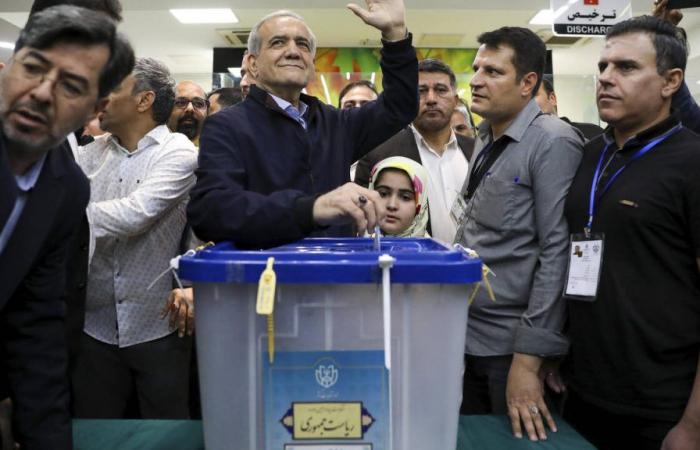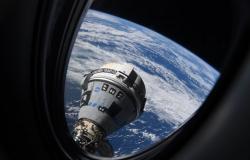Massoud Pezeshkian leads by a million votes
Around 9:45 a.m. (Swiss time), out of 19.07 million ballots counted, MP Massoud Pezeshkian received 8.30 million votes and Saïd Jalili, former nuclear negotiator, 7.19 million.
They were clearly ahead of the conservative speaker of parliament, Mohamad Baquer Ghalibaf, who received 2.68 million votes. Far behind, the fourth candidate, Mostafa Pourmohammadi, the only religious figure in the running, received 158,314 votes.
The authorities did not give any figures on participation, although some 61 million voters were called to vote on Friday.
Regarding this election: Six candidates have been authorized to run in Iran’s June 28 presidential election to succeed Ebrahim Raisi.
After the fatal accident of Ebrahim Raïssi
The election was hastily called after conservative President Ebrahim Raisi died in a helicopter crash on May 19.
It is being closely followed abroad as Iran, a Middle Eastern heavyweight, is at the heart of several geopolitical crises, from the war in Gaza to the nuclear issue, in which it opposes Western countries.
The Islamic Republic’s highest authority, Ayatollah Ali Khamenei, had called on voters on Friday to “take the vote seriously and participate in it.” Opponents, particularly those in the diaspora, had called for a boycott of the poll.
A strong participation was desired by the authorities while the 2021 presidential election, for which no reformer or moderate candidate had been authorized to compete, was marked by a record abstention of 51%.
Two very different candidates
If a second round was confirmed between MM. Pezeshkian and Jalili, it would oppose two personalities with very different profiles and programs.
Aged 69 and a surgeon by profession, Massoud Pezeshkian is a member of parliament for Tabriz, the major city in northwestern Iran, and has limited government experience, including a position as health minister from 2001 to 2005 in the reformist government of Mohammad Khatami. He has become known for his outspokenness, having not hesitated to criticize the government during the protest movement sparked by the death in custody of Mahsa Amini in September 2022. He also advocates a warming of relations between Iran and Western countries, led by the United States, in order to lift the sanctions that are severely affecting the economy.
About him: In Iran, the obstacle course of the unexpected and isolated “reformer” Massoud Pezeshkian in the presidential election
Conversely, Saïd Jalili, 58, is a supporter of an inflexible policy towards the West. He demonstrated this during the six years in which he led negotiations on Iranian nuclear power, between 2007 and 2013. Throughout his career, Saït Jalili accessed key positions within the Islamic Republic with the confidence of Supreme Leader Ayatollah Khamenei. He is currently one of its two representatives on the Supreme National Security Council, the highest security body in the country.
Without publishing the first results, the press took a position on Saturday morning according to its political attachment. “Long live hope,” headlined the reformist newspaper Sazandegi, publishing a photo of Massoud Pezeshkian, while the government daily Iran called for “voting for the authority of Iran.”
Whatever the outcome, the election is likely to have limited repercussions because the president has limited powers: he is responsible for implementing, at the head of the government, the broad political guidelines set by the supreme leader, who is the head of state.






